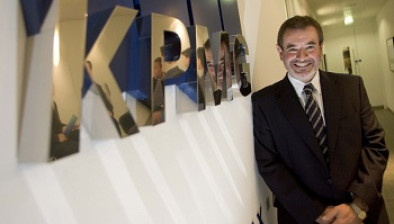SRC & KPMG: Return to school fails to stem Scottish retail sales decline
Scottish retail sales saw a slight recovery in February although still at a decline of 24.3% on a Total basis, which was up from the recent low seen in January, according to the latest Scottish Retail Consortium & KPMG Scottish Retail Sales Monitor.

The second consecutive month under ‘stay at home’ orders, with all non-essential stores remaining closed for the vast majority of the country, was once again the overriding issue plaguing the industry in February.
For Food, the continued closure of pubs and restaurants benefitted grocery stores once again, although growth slowed to its lowest level since August. Whereas on the Non-Food side of consumer spending, the severe decline seen since the onset of the coronavirus crisis persisted once again, which is hardly a surprise given the current conditions.
However, there was an added boost during the month, as Children’s Clothing significantly improved following the announcement of the schools reopening mid-month.
Scottish sales decreased by 21.0% on a like-for-like basis compared with February 2020, when they had decreased by 1.6%. This is below the 3-month average decrease of 20.2% and the 12-month average decrease of 14.9%.
Total Food sales increased 3.1% versus February 2020, when they had increased by 2.9%. February was below the 3-month growth of 3.5% and 12-month average growth of 4.0%. The 3-month average was below the UK level of 7.9%, while the 12-month average was below the UK’s levels of 6.6%.
Total Non-Food sales decreased by 47.4% in February compared to February 2020, when they had decreased by 3.8%. This was below the 3-month average decline of 44.3% and the 12-month average decline of 34.6%.
Adjusted for the estimated effect of Online sales, Total Non-Food sales decreased by 20.2% in February versus February 2020, when they had decreased by 2.4%. This is above the 3-month average decline of 21.1% and below the 12-month average decline of 18.1%. Those are lower than the UK’s 3m average decline of 5.5% and 12m Total average decline of 6.1% respectively.
Paul Martin, partner, KPMG’s head of retail, said: “The latest data suggests that Scottish consumers are continuing to tighten their belts and pause on spending until restrictions are eased. While there has been a modest improvement on January’s poor results, total sales year-on-year are down 21% and non-food takings are down more than 47%, reinforcing the fact that the challenges facing the sector show little sign of easing quickly.
“All eyes will be on the next two months as restrictions are gradually eased and we’re able to directly compare with the start of lockdown in March 2020. The recent UK and Scottish Budgets provided some short-term lifeline support to shops, but for many retailers – both independent and national – thinner margins, rising costs and a transformation in consumer behaviour could be the breaking point for the industry. However, we should have a degree of optimism that some lost ground will be regained as warmer weather, a successful vaccine rollout and fewer regulations encourage spenders back to Scotland’s struggling High Streets.”
David Lonsdale, director at the Scottish Retail Consortium, commented: “February wasn’t quite as dismal as January for Scottish retail sales, but the overall picture remains unremittingly bleak. Sales fell in real terms by 22%, the fourth worst monthly performance in the past year, and were only aided by a small but nonetheless discernible boost in kids clothing sales ahead of primary children returning to school.
“Grocery sales remained buoyant, although the slippage in the growth rate to 3% was the slowest since August and was underwhelming when eateries and hospitality businesses remain shuttered. The main event was Valentine’s Day which saw positive food sales as couples celebrated at home. With Scots stuck at home and unable to visit shops non-food categories remained in the doldrums, although school clothing and shoes provided a chink of light for hard-pressed fashion retailers as parents prepared children for the return to the classroom.
“With sales down by more than a fifth it’s clear retail has suffered immensely from the lockdown restrictions imposed in response to Covid. However, this month’s figures suggest that there is suppressed demand in the economy. With the evidence continuing to show retail is a low-risk environment this reaffirms the important role the industry can play in restarting the economy when it’s safe to do so.”









